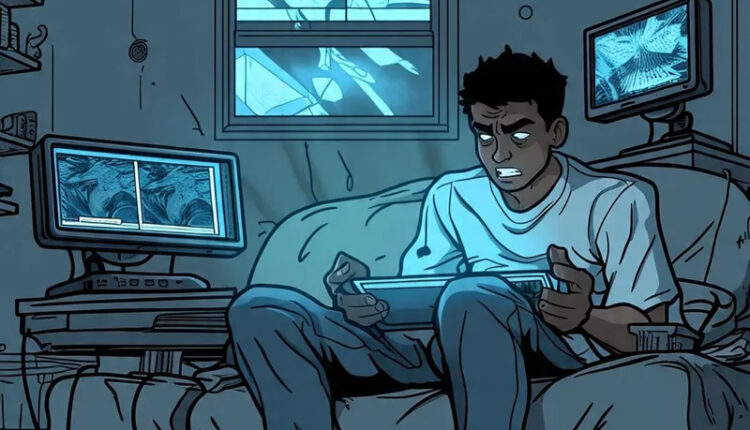
Mean World Syndrome
Prolonged exposure to media, especially violent content, could cultivate a deeply negative, fear-driven perception of reality
In 1970s, media scholar George Gerbner began noticing a disturbing pattern among heavy television viewers. They believed that the world was far more dangerous than it actually was! Their worldview wasn’t just shaped by the news; it was distorted by it. Streets seemed more violent. Strangers more suspicious. Life itself more threatening. This was not a coincidence; it was a syndrome. Gerbner named it the Mean World Syndrome, a concept stemming from his ‘Cultivation Theory’, which argued that prolonged exposure to media, especially violent content, could cultivate a deeply negative, fear-driven perception of reality.
Back then, the media ecosystem was limited. There were a few TV channels, a newspaper or two, and perhaps the evening news. But today, the “mean world” has evolved into something far more complex, pervasive and insidious. It’s not just a syndrome anymore. It’s a system, a culture, even an economy. Fear is no longer just a by-product of media consumption—it’s the fuel that drives algorithms, boosts ratings, sells products and elects leaders. Today’s mean world lives in our pockets. We scroll through violence, outrage, misery and commotion disguised as information. From crime reels to communal flare-ups, from WhatsApp forwards to live-streamed trauma, the content we consume is no longer passive. It’s interactive, personalized and algorithmically optimized for our worst emotional triggers. Gerbner’s heavy TV watchers have become today’s compulsive doomscrollers, and the side effects are shockingly similar: anxiety, scepticism, vulnerability and disconnection from real-life world.
However, there is a different twist and turn. In the digital age, you don’t even have to believe the world is terrible for the syndrome to take hold. Your brain believes it. Your mind bolsters it. Trust slowly erodes—not just in others, but in everything around. You may still say the world is good, but you walk with dismay and distrust. The real world becomes secondary to the one fed into your brain.
Meanwhile, behind this curtain, fear gets monetized. Platforms track your reactions. The longer you pause on that video of a mugging, or the more angrily you comment on a political clip, the more you teach the algorithm what you want—except you didn’t want it. It wanted you. In this way, Mean World Syndrome has evolved into a feedback loop, where fear feeds clicks, and clicks feed fear. It’s no longer just a psychological condition. Hashtags, Headlines and Hysteria. It’s all inside the Mean World economy. It’s a business model.
And then, sadly, the digital mean world is expanded to include social and emotional violence—the fear of being invisible, detested, unliked, unsuccessful. Social media has gamified self-worth. Every selfie and dp competes with a travesty. Every job update feels like a public evaluation. Every moment not captured or shared, risks being forgotten, or worse, deemed trifling. You seek social validation for something frail. Your personal insecurities hog your digital spaces. In the attention economy, irrelevance is becoming the new existential risk.
And yet, someone profits. Fear sells security cameras. Panic sells policies. Outrage sells prime-time news. Anxiety sells meds and tech gadgets. Political fear sells nationalism. Social fear sells validation loops. The Mean World is now fully integrated into commerce and culture. It’s curated, marketed and normalized.
So how do we resist? You can’t just unplug and disappear. The world is not a place you can sign off forever. Nonetheless, you can start repairing your perception. Audit your feed like you audit your food. Remove what is toxic, senseless or hollow. Make space for what nourishes the mind. Carve out a “kind world hour” every day where you expose yourself to stories of forbearance, generosity and creativity. Take regular “perception fasts” from algorithmic media. Talk to real people in your life. Replace absurdity with authenticity.
Then, there is this quiet tragedy of Mean World Syndrome—when we believe the world is worse than it is, we stop noticing the beauty that is still here. The stranger who returns a lost wallet. The doctor who holds a dying patient’s hand. The special child who plants trees. The visitor who stands for you in respect. These stories are rarely shared, but they are everywhere. They just don’t go viral. They need not to. Actually.
George Gerbner once said, “Fearful people are more easily manipulated.” Today, his insight is more relevant than ever. The real fight is not just against media distortion—it’s for our ability to see clearly, judge sincerely, live meaningfully and relate genuinely. The world isn’t necessarily mean. It’s simply under-told.
Content retrieved from: https://www.greaterkashmir.com/opinion/mean-world-syndrome/.

